After more than half a year of preparation and with the support of Shenzhen University and in particular the graduate school of the School of Foreign Languages, the "2019 Academic Forum for Graduate Students in the Guangdong-Hong Kong-Macao Greater Bay Area", aimed at promoting educational innovation, was held in Huiwen Building, on Yuehai Campus of Shenzhen University on November 23 and 24, 2019. The forum was held under the leadership of Dean Zhang Xiaohong (as the leader of the organizing committee), and the guidance of distinguished professor Tan Zaixi (as the chairman of the academic committee).
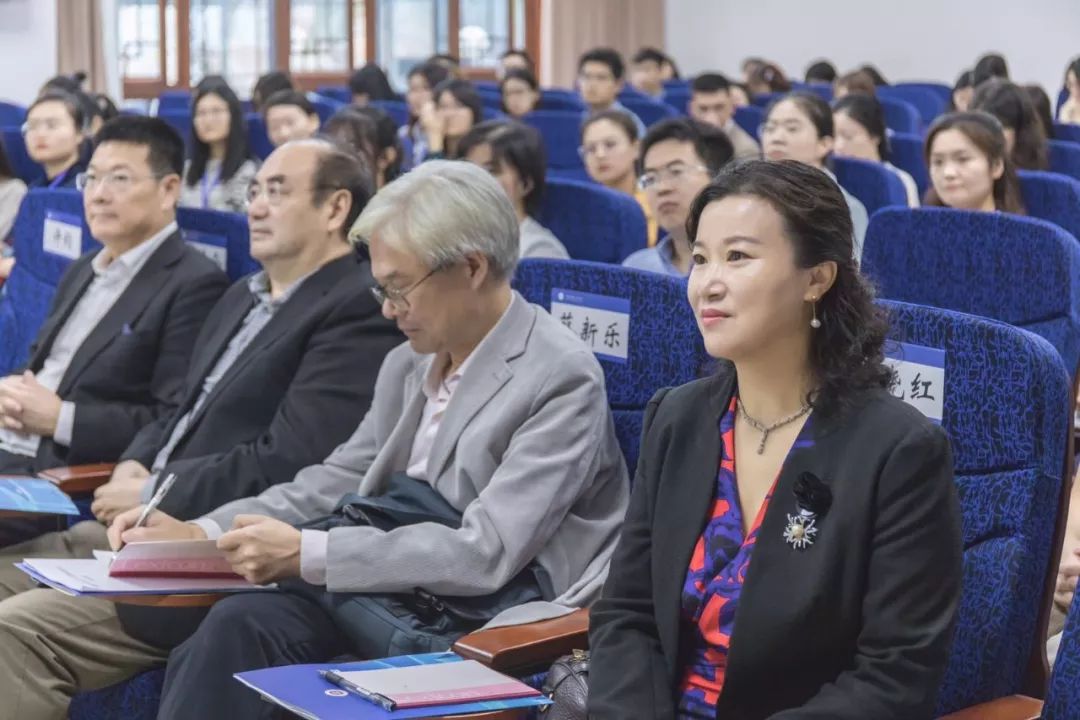
(From right to left: Prof. ZHANG Xiaohong, Prof. CAI Xinle, Prof. TAN Zanxi, Prof. ZHONG Weihe)
Prof. Xu Jun and Prof. ZhongWeihe, two executive vice presidents of the Translators Association of China, a national first-class association, and Prof. Wang Ning, the president of the Association of Chinese Comparative Literature, a national first-class society, attended the forum and delivered speeches. The speech of Prof. Xu Jun was quite enthusiastic and thought-provoking, while Prof. Zhong Weihe's keynote speech, entitled "The Development of the Discipline and Profession of Translation in China: From Language Learning to Language Service" also demonstrated his broad vision and deep thinking. Professor Wang Ning's keynote speech, “Translation as Cross-Cultural Interpretation” also presented a grand narrative and conveyed a profound message. Two distinguished professors, Prof. Tan Zaixi and Prof. Cai Xinle, both of our school, also delivered keynote speeches. With the topic of "National Interests in News Translation", Prof. Tan Zaixi presented the findings of an in-depth empirical study on cultural politics in international news discourse translation. Prof. Cai Xinle explored the fundamental significance of Confucianism to translation studies, and delivered his report themed “The mind has no boundaries: On the synchronic significance of translation of Confucian classics in the post-rationalized era".
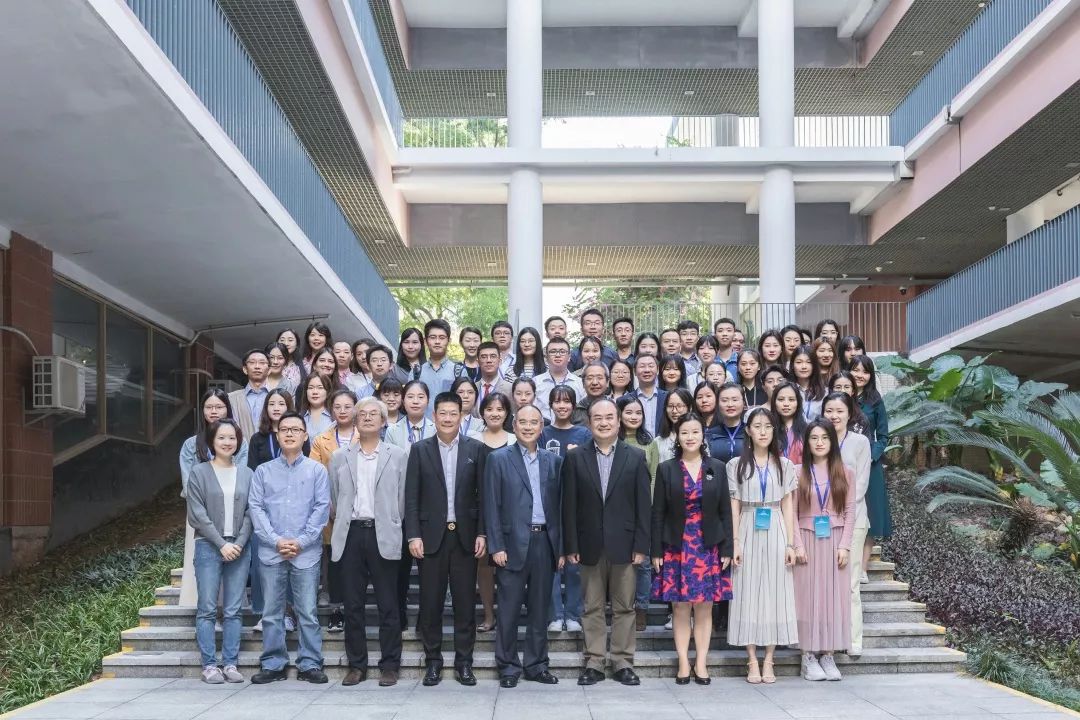
(A group picture of all participants of the forum)
In addition to the above-mentioned keynote speeches, there were eleven parallel sessions. The organizing committee received a total of 189 applications and abstracts of theses. After rigorous anonymous review and assessment, a total of 50 abstracts from doctoral and master’s students were selected, ensuring a fair and diverse academic forum. Participating graduate students included not only those from major universities in the Guangdong-Hong Kong-Macao Greater Bay Area, such as Sun Yat-sen University, South China University of Technology, Guangdong University of Foreign Studies, The City University of Hong Kong, Hong Kong Polytechnic University, and University of Macau, but also the doctoral and master’s students from Project 985/211 universities (world-class universities) across the country, such as Beijing Foreign Studies University, Shanghai International Studies University, Nanjing University, Nankai University, Xiamen University, Southwest University, University of Chinese Academy of Social Sciences, etc. Seven Ph.D. and MA students from Shenzhen University attended the forum.
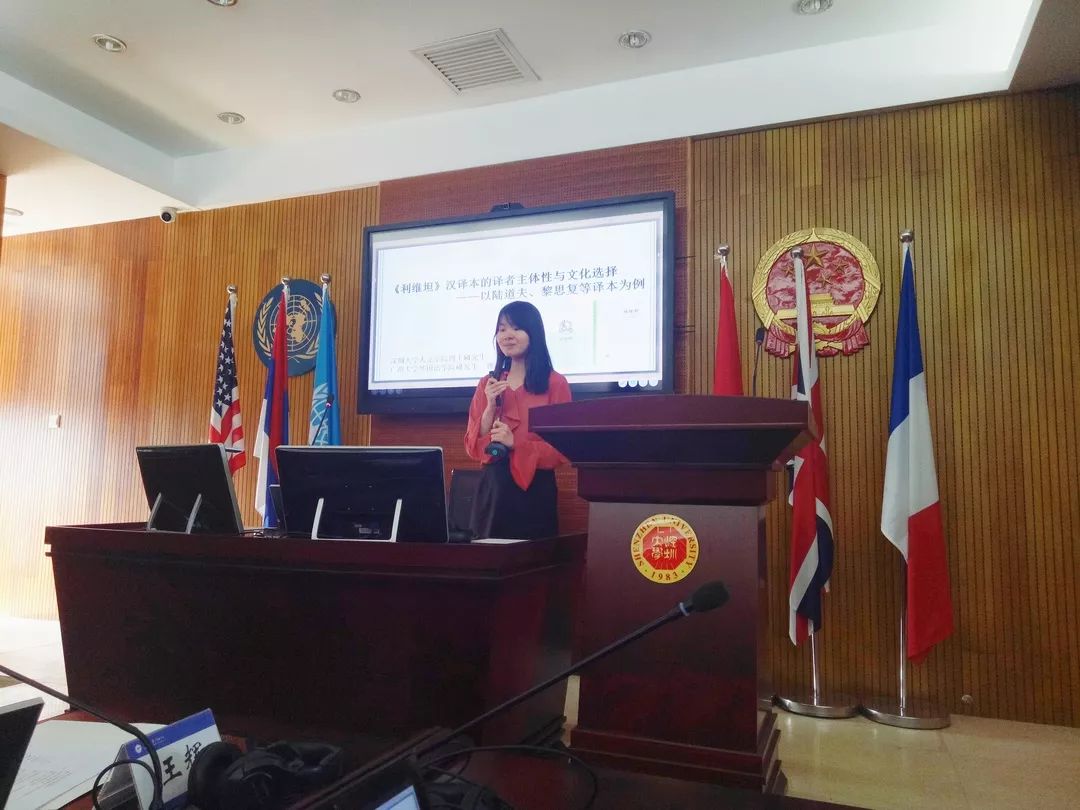
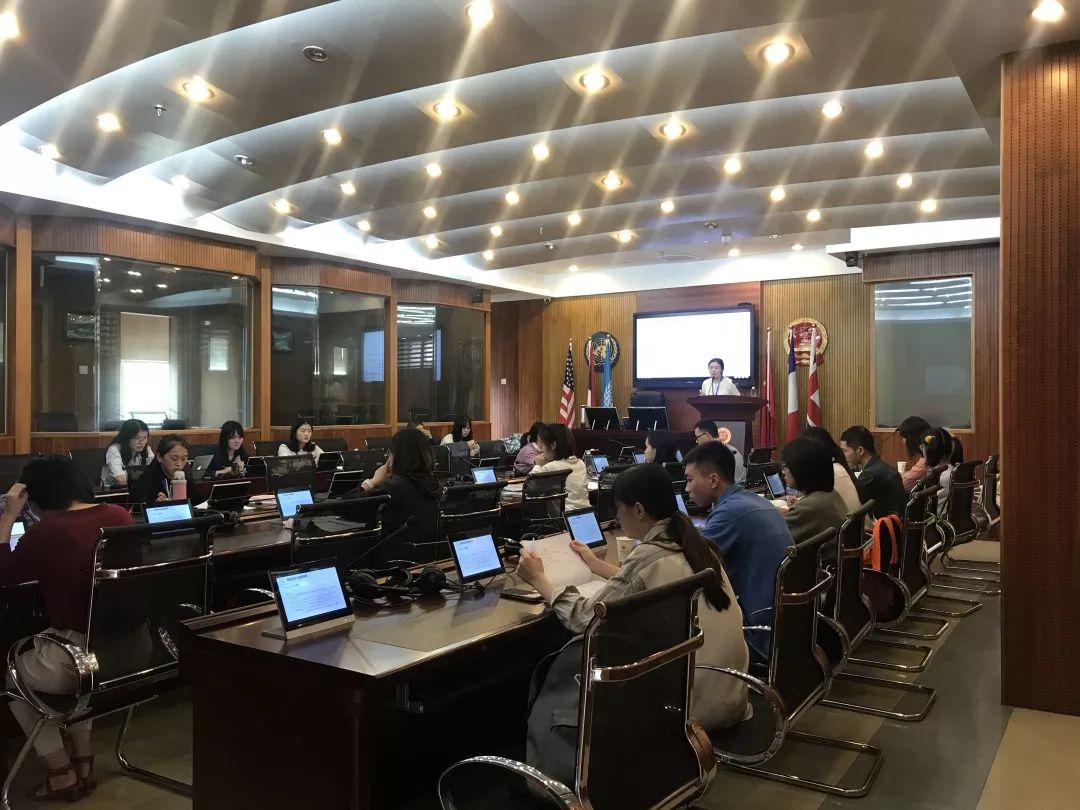
This forum was held against the background of the “Guangdong-Hong Kong-Macao Greater Bay Area” and “the Pilot Demonstration Zone of Socialism with Chinese Characteristics” in the new era. Focusing on the theme of “Translation Theory and Methods Innovation of the New Era”, the forum covered a wide range of topics including the modern significance of Chinese traditional (translation) thinking, translation and dissemination of practical texts, basic issues in literary translation, translation from the sociological perspective, cognitive translation, artificial intelligence, big data, and interpreting and translation, issues in translation teaching, language services, and translation projects. This forum helped to broaden the academic development path of translation research, stimulated academic innovation, promoted disciplinary exchanges and innovation in academic discourse, and strengthened cultural, scientific research and academic exchanges in the teaching and learning of translation among universities in the Guangdong-Hong Kong-Macao Greater Bay Area. It also promoted the sustainable development of the translation discipline in the new era, and therefore can be regarded as a high-standard successful event of great significance.
In the beautiful November autumn and in the Chinese Studies Lecture Hall of the School of Humanities next to the Memory Room, this forum presented a grand academic feast for the participating graduate students and helped to greatly improve the influence of Shenzhen University in the translation and foreign language circles in the Guangdong-Hong Kong-Macau Greater Bay Area and even across the country.
Opening Speech delivered by Prof. Zhang Xiaohong, Dean of the School of Foreign Languages
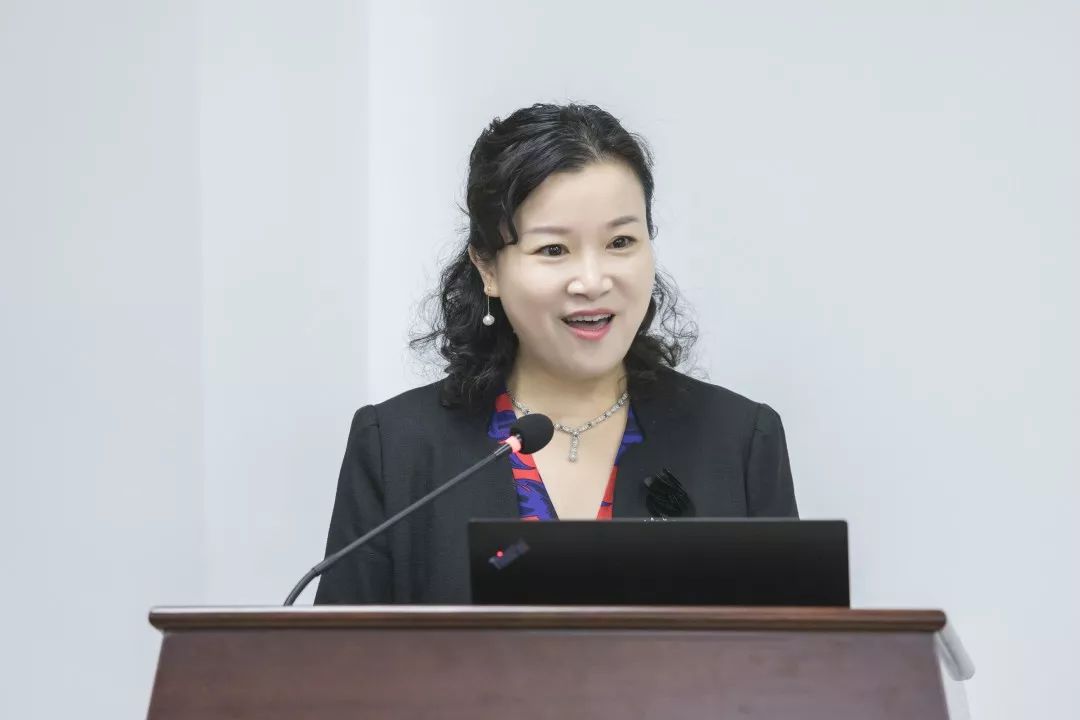
Distinguished guests, fellows, and dear students:
Good morning!
In the best season of Shenzhen, we finally meet with you after more than half a year of preparations and waiting.
The autumn of Shenzhen stays for a rather short and quiet period of time. You probably won’t even notice that some of the grass turned yellow already. In 2000, the winning poem "November" of the Dutch National Reading Month was a simple repetition of the word "November". Back in 1980, Bei Dao’s poem "Life" contained only the word "net", which was vivid and concise enough to describe the whole world. The American poet Robert Frost left the world a famous line that "Poetry is what gets lost in translation", and the title of the Hollywood movie "Lost in Translation" also captures the myths surrounding translation.
With increasing cultural exchanges among the nations of the world, translation has become an indispensable bridge, promoting cultural exchanges, technological development, and ideological and social changes. Literary relations and cross-cultural communication are, in their nature, about translation. Looking back over the past forty years, the rapid development of Chinese translation studies is unmatched in any previous period. Foreign translation vocabulary, ideas and concepts such as "source text", "target text", "translation equivalence", "functional equivalence", "reader response", "text acceptance" and "cultural turn" have flooded the contemporary Chinese translation studies field and enriched our research. This has contributed to the modernization of Chinese translation studies in a relatively short period of time. From language conversion to functional equivalence, from intra-lingual translation to inter-lingual translation, from domestication to foreignization, from translator's invisibility to translator's presence, from text translation to cultural translation, from human translation to machine translation... this not only illustrates the renewal of translation concepts, but also shows the "risks" and "opportunities" we face in the process of institutionalization of the translation discipline. It is the persistent pursuit of generations of scholars to build translation as a major, and a discipline. They are the Prometheus, the builders of the Tower of Babel, and the Sisyphus, making perplexing efforts to build up the subjectivity of the translation discipline and crossing the thorny forest of words and language to break through the cultural and national barriers of language. In the course of the development of the translation discipline of Shenzhen University, Prof. Tan Zaixi, Prof. He Daokuan, Prof. Ruan Wei, Prof. Liu Yingkai, along with many others, have devoted themselves to developing translation theories. They insist on seeking truth above everything else, exploring translation issues, training translation talents, and actively promoting the continued development of the discipline. Let’s pay tribute to the translation discipline and all translation scholars!
Standing at a new historical starting point, Shenzhen, the city of Reform and Opening Up, has been entrusted with a new historical mission, that is to build a pilot demonstration zone for socialism with Chinese characteristics. The former "vanguard" has turned into a "leading soldier" and now we need to dismantle the ideological barriers and take a more liberating mindset and smarter actions to further explore the benefits of Reform and Opening Up in the new era.
What is translation? Where are the translation scholars heading? How do we respect the universal features of translation while promoting nationality? How do we strike a balance between introducing foreign translation ideas and developing local theories? How do we explore the relationship between the introduction and creation of theory, the relationship between theory and practice, natural intelligence and artificial intelligence, manual translation and machine translation, and the relationship between traditional concepts and modern technology? These are questions that we need to ponder upon in the process of the great cause.
The “2019 Academic Forum for Graduate Students in the Guangdong-Hong Kong-Macao Greater Bay Area", with the theme of "Translation Theory and Method Innovation of the New Era", covered many important topics, such as Chinese traditional (translation) ideas, practical text translation, literary translation, sociology and recognition, artificial intelligence, big data, interpreting and translation, and translation teaching, and more. It also stimulated academic innovation, promoted disciplinary exchanges, as well as innovation in academic discourse through the keynote speeches and the parallel sessions. Influenced by two different systems and cultures, the Guangdong-Hong Kong-Macao Greater Bay Area is incorporating multicultural values. Based on such a broad context of the times, the forum was significant for strengthening cooperation, exchange and interaction between universities in the Guangdong-Hong Kong-Macao Greater Bay Area in the field of translation research and translation teaching, and it is bound to promote the sustainable development of translation disciplines in the new era.
Finally, on behalf of our school, I sincerely wish the forum a complete success, and I wish you a pleasant stay here!
Thank you!

